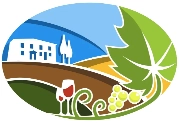
Understanding the Wine Snob Phenomenon

In this exploration, we’ll dissect the essence of the wine snob, examining the behaviors, attitudes, and perceptions associated with this label. Beyond the stereotypes, we’ll delve into the nuances of wine appreciation, discussing how passion for wine can sometimes morph into snobbery and exploring ways to cultivate a more inclusive and enjoyable wine culture.
The Anatomy of a Wine Snob
At its core, a wine snob is often characterized by an air of superiority when it comes to wine knowledge and tasting experiences. This individual may exude an attitude that suggests their palate is more refined, their knowledge more extensive, and their preferences more discerning than the average wine enthusiast. The wine snob tends to gravitate towards rare or expensive bottles, dismissing more accessible options with a haughty demeanor.
It’s crucial to note that the term “wine snob” is subjective and often used in a pejorative sense. What one person perceives as snobbery might be seen as genuine passion or expertise by another. Understanding the motivations behind certain behaviors can help demystify the concept of the wine snob.
The Quest for Rarity and Prestige
One of the defining characteristics of a wine snob is the pursuit of rarity and prestige. This individual may prioritize wines from renowned regions, exclusive vineyards, or limited production batches. While there’s nothing inherently wrong with appreciating fine and rare wines, the snobbery arises when these preferences are wielded as a badge of superiority, implying that only those with access to such rarities truly understand and appreciate wine.
The danger in this mindset is the potential dismissal of more accessible and affordable wines that can offer delightful experiences. True wine appreciation embraces diversity and recognizes that exceptional wines exist at various price points and from different regions.
Connoisseurship or Condescension?
The line between being a wine connoisseur and a wine snob can sometimes blur. While a connoisseur is someone with a deep knowledge and appreciation for wines, a wine snob often transforms this passion into a tool for condescension. Snobs may scoff at those who don’t share their level of expertise or turn their noses up at wines that don’t meet their perceived standards.
True connoisseurship, on the other hand, involves sharing knowledge, fostering curiosity, and appreciating the diverse world of wines. It is inclusive and encourages others to explore and enjoy wine without judgment.
The Role of Exclusivity and Elitism
Exclusivity and elitism can be breeding grounds for wine snobbery. The desire to be part of an exclusive club or to possess a wine that few others have tasted may lead individuals to adopt snobbish attitudes. This exclusivity can manifest in language, demeanor, or the intentional withholding of information to maintain an air of mystery.
However, the essence of wine lies in its ability to bring people together, fostering shared experiences and conversations. Breaking down the barriers of exclusivity and embracing a more inclusive wine culture can transform the narrative surrounding wine appreciation.
The Importance of Context and Subjectivity
Wine snobbery often arises when individuals lose sight of the subjective and contextual nature of wine appreciation. Taste is personal, and what one person loves, another may not. A wine snob might insist that there is only one “correct” way to appreciate a particular wine or grape variety, disregarding the diverse preferences and experiences of fellow enthusiasts.
Understanding that the world of wine is vast and multifaceted encourages a more open-minded and inclusive approach. Embracing diverse opinions and recognizing that enjoyment is subjective allows for a richer and more enjoyable exploration of wines.
Cultivating a Positive Wine Culture
To counteract the negative aspects associated with wine snobbery, cultivating a positive wine culture is essential. This involves fostering a sense of community, encouraging curiosity, and appreciating wines across a spectrum of styles and price points. Events that celebrate wine as an experience, such as tastings, festivals, and educational seminars, contribute to a more inclusive and welcoming atmosphere.
Wineries, wine educators, and enthusiasts can play a pivotal role in shaping this culture by sharing their knowledge in a way that inspires rather than intimidates. Creating an environment where questions are encouraged, and discoveries are celebrated helps break down barriers and dispel the notion that wine appreciation is an exclusive club.
Redefining the Wine Narrative
In the end, the concept of a wine snob is a construct that can be dismantled through education, inclusivity, and a genuine passion for the art of winemaking. Wine is a living, breathing entity that thrives on diversity and community. By embracing the spectrum of wine experiences and appreciating the individual journey each enthusiast takes, we can redefine the wine narrative and create a culture that celebrates the beauty, accessibility, and joy that wine brings to our lives. Let us raise our glasses to a more inclusive, open, and enjoyable world of wine. Cheers!

